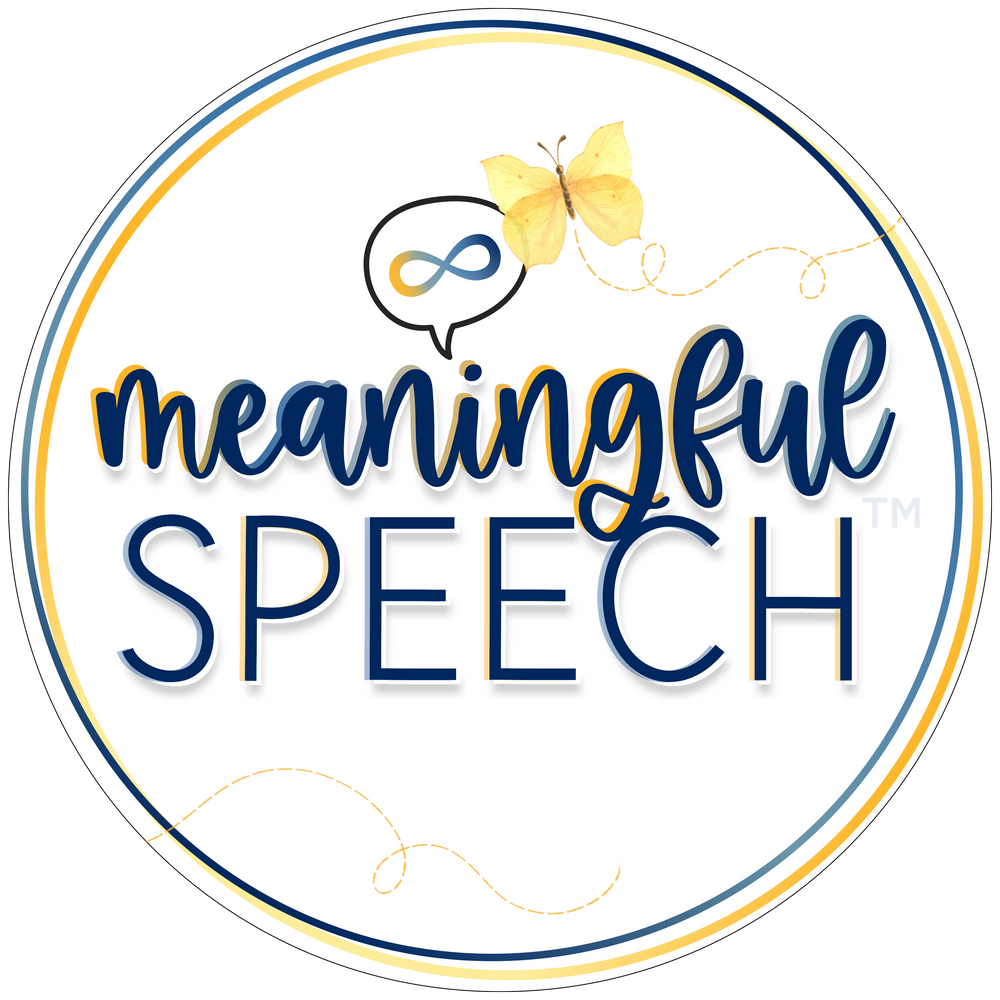Rewards & Speech-Language Therapy
Nov 08, 2023
Many speech-language pathologists and caregivers still use reward systems, meaning the child earns extrinsic rewards like special/preferred interest items/toys, stickers, food, movement/sensory “breaks”, etc. However, we are missing the big picture here. We’re not looking at the whole child and the areas they need support because if they could do it, they would. So why are so many still doing this?
Let's look at my story
I worked as a public school speech-language pathologist for nine years. Every year I ran social skills groups with the school social worker. Our main goal in these groups was to get kids to play together (yes, I’m cringing as I write this). We wanted them to play board games together. We even bought a whole drive through McDonald’s set we stored in the janitor’s closet to try to encourage pretend play. How did we try to do this? Well, we rewarded children in these groups with candy, stickers and other trinkets. If the child moved their board game piece, sat in their chair and played the game they would get candy! All kids love candy, right?! Seems easy. Even the pediatrician’s office gives out candy.
However, we were clueless about autistic play. Clueless about being neurodiversity affirming. Totally clueless. The entire time we were thinking, “we have a Master’s degree and we’re trying to get kids to play and talk by bribing them with candy.” It wasn’t working. We were spinning our wheels and yet we did it week after week. We had no guidance and no other tools - our toolbox was empty. We know many parents and professionals out there feel this way today (my story is from about 15 years ago).
Why rewards don’t work
“Kids do well if they can.” -Dr. Ross Greene
Reward strategies assume that children have the skills many parents & professionals are looking for but that they don’t have a strong enough incentive to use them. This is not the case. Like Dr. Ross Greene said, kids do well when they can. Candy won’t help language develop. Treats won’t encourage neurotypical play. Rewards won’t increase utterance length. We are missing the big picture. We’re not looking at the whole child and the “why”. Many parents and professionals are still using reward systems because they don’t have the tools or knowledge to know what else to do. It comes down to truly understanding play and language development.
So what can we do?
- Don’t bribe or use rewards like food, sensory breaks or playing with a special toy.
- Movement and special/preferred interests should be part of child-led play therapy. We should focus on what is natural and intrinsically motivating for that child rather than using these interests or sensory supports as a treat or reward they have to earn. Oftentimes, children will lose interest in the items or activities that once brought them joy when used as a reward.
- Focus on child-led play and abandon your adult-directed plans.
- We don’t need to play the board game the way it’s intended and we don’t need to force a certain type of play. All play is okay! Neurodivergent children and neurotypical children may play differently, it doesn’t make either way “wrong”.
- Realize you may be teaching or supporting a higher level skill the child is NOT ready for.
- Not all our kids are ready for toy play, board game or pretend play. That’s ok! These kids need more sensory, movement and people play (think hide and seek and blanket games).
- Consider learning more about child-led play and gestalt language development (information below to learn more!)
Want to learn more in-depth information about how to support gestalt language processors?
1. There are many free podcasts, webinars and articles to get you started. A comprehensive list of resources can also be found on our website and Communication Development Center's website.
2. Consider taking the Meaningful Speech course to learn more about how your child or client processes language, how you can help support them from echolalia to self-generated (original flexible) language, child-led therapy, and neurodiversity-affirming practices. Looking for something shorter? We have a 1-hour introductory course perfect for extended family, daycare or school staff.
3. Consider taking our AAC + Gestalt Language Processing course. It will teach you how to identify, evaluate and support gestalt language processors who use AAC or who you think might benefit from AAC.
4. Look for a speech-language pathologist (SLP) who "gets it" and can help you in supporting your child's language development. Check out our registry for SLPs who understand gestalt language processing and child-led therapy.
5. Are you a school-based or private practice clinician looking for intake forms for new clients/students or creative visual reminder posters for your space? Check out the Meaningful Speech Marketplace.
